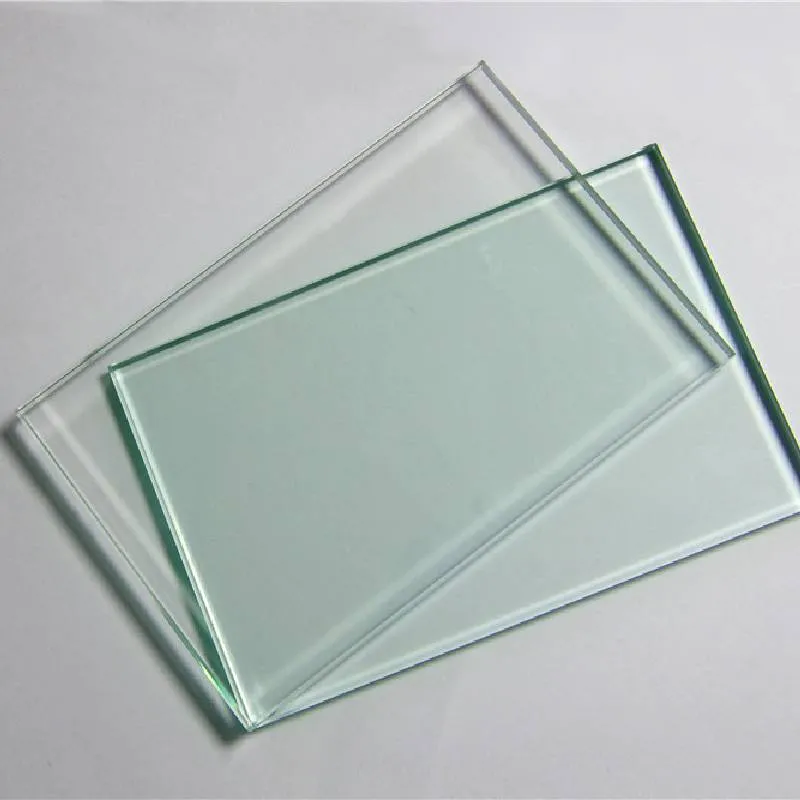

When clarity, durability, and versatility are required, clear float glass stands out as the undisputed choice for both functional and decorative purposes. From commercial skyscrapers to elegant home interiors, clear float glass is the foundation of modern glazing, thanks to its superior optical transparency and consistent quality. Whether you're seeking architectural refinement or high-performance material for manufacturing, this glass provides unmatched reliability and aesthetic appeal.

To understand the value of clear float glass, we must first look at its production method. Float glass is created by floating molten glass on a bed of molten tin, which allows it to cool evenly and form a perfectly flat surface. This process results in a sheet of glass that has uniform thickness, exceptional clarity, and a smooth finish.
The key distinction between clear float glass and ordinary flat glass lies in purity and visual performance. While standard flat glass may have distortions, bubbles, or inconsistent thickness, clear float glass is produced under strict quality controls to achieve optical-grade clarity and high structural integrity. Its ultra-smooth surface also allows for further processing, such as tempering, laminating, and coating — making it a preferred base material for value-added glass products.
Compared to conventional flat glass, clear float glass offers a higher level of transparency and light transmission, making it ideal for applications where visual appearance and daylight access are priorities.
One of the reasons clear float glass is so widely used across industries is its broad range of available thicknesses. From the delicate 2mm clear float glass to robust sheets exceeding 19mm, there is a thickness suited for every application.
2mm clear float glass is typically used in photo frames, small showcases, and interior partitions where weight reduction and clarity are key. It’s lightweight, cost-effective, and easy to handle, making it ideal for both consumer and industrial use.
Thicker variants — such as 6mm, 10mm, and even 15mm — are favored for exterior glazing, aquariums, balustrades, and structural panels. Thicker clear float glass not only enhances safety but also boosts thermal and sound insulation properties. Customization in terms of edge finishes and sizes further adds to its functional and visual value.
When it comes to sourcing affordable and high-quality float glass, china clear float glass dominates the global landscape. Known for its technological innovation and large-scale production capabilities, Chinese manufacturers consistently deliver excellent products at competitive pricing.
The rapid growth of clear float glass manufacturers in China has resulted in more streamlined production, better logistics, and enhanced customization options for international buyers. These suppliers offer everything from raw float sheets to coated and processed variants tailored for specific markets such as construction, electronics, and automotive.
Clients looking for bulk purchase options often turn to china clear float glass suppliers not just for affordability, but also for their flexible production schedules, high-volume capacity, and compliance with international safety and environmental standards.
Understanding the factors that influence clear float glass price is key for budget-conscious planners, architects, and manufacturers. While prices vary depending on thickness, quantity, processing requirements, and delivery location, clear float glass remains one of the most cost-effective materials for transparent applications.
Base-level 2mm clear float glass is typically the most economical choice, used for low-impact applications. As thickness increases or when custom shapes, coatings, or safety treatments are added, the clear float glass price adjusts accordingly.
However, the long-term value of clear float glass cannot be overstated. Its durability, ease of maintenance, and adaptability significantly reduce lifecycle costs. Whether used as-is or integrated into advanced laminated or insulated glass units, clear float glass ensures a long-lasting, high-performing result.
As trends shift toward natural lighting, minimalism, and energy efficiency, clear float glass continues to gain prominence. It offers architects and designers the freedom to build open, airy spaces while meeting energy regulations and visual goals. Its neutrality and adaptability make it suitable for virtually any environment — from residential windows to retail storefronts and museum displays.
In high-traffic commercial areas, clear float glass is often chosen for its visual appeal and scratch resistance. It is also used in solar panels, electronic devices, and greenhouses, thanks to its high transparency and thermal performance.
In addition, advanced processing options such as acid etching, screen printing, and reflective coatings allow designers to push boundaries while relying on the robust clarity and structure of clear float glass.
Clear float glass is manufactured using a precision float process, resulting in higher clarity, fewer imperfections, and consistent thickness — unlike ordinary flat glass which may have bubbles or surface waviness.
Clear float glass is available in a variety of thicknesses, from ultra-thin 2mm clear float glass to thicker options like 19mm, catering to both lightweight and heavy-duty applications.
China clear float glass is renowned for its excellent quality, affordability, and the vast production capacity of clear float glass manufacturers, making it a leading global source.
Clear float glass price depends on thickness, size, custom treatments, and volume. Additional processing such as tempering or laminating will affect the final cost.
Absolutely. With proper thickness and treatment, clear float glass performs exceptionally well in exterior glazing, offering strength, transparency, and compatibility with energy-efficient coatings.